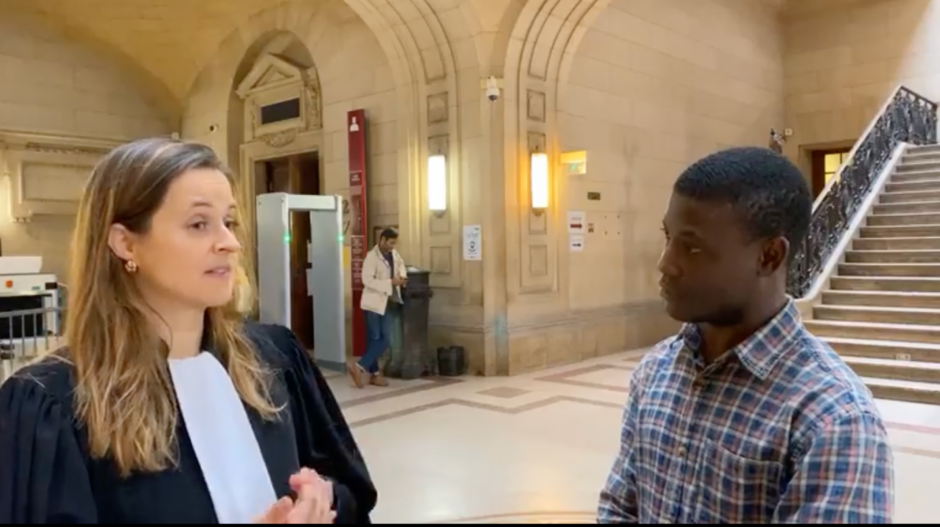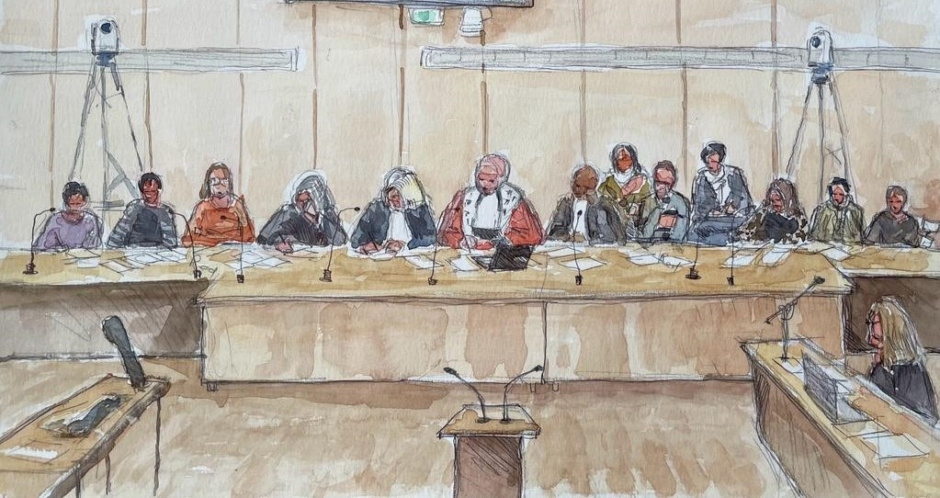
PARIS, France—The lawyer for the ten plaintiffs who filed a formal complaint against Kunti Kamara, an accused Liberian warlord, says she’s hopeful he will be found guilty when the jury retires to consider their verdict next week. The defendant, 47, faces up to 30 years in prison if convicted.
Report by Anthony Stephens with New Narratives
Kamara, a former commander for the United Liberation Movement for Democracy (ULIMO), is accused of crimes against humanity and torture, including murder, cannibalism, and complicity in rapes, which he allegedly committed in Foya, Lofa County, Liberia in 1993. Kamara does not deny he was in Lofa with ULIMO, but he has repeatedly denied the charges, accusing the witnesses of seeking personal enrichment through their testimony, though there has been no evidence presented to substantiate that claim.
On Friday, Sabrina Delattre, the plaintiffs’ lawyer in this trial, presented her final argument to the court. She is the first of three parties to give closing statements. In a feature of the French legal system – not seen in trials in other jurisdictions including Liberia, the US and UK – plaintiffs are represented by their own lawyer, separate from the prosecutors. The prosecution and defense teams will give their statements on Monday before the court retires to consider a verdict which is expected Thursday.
“None of the victims exaggerated the facts,” said Delattre, confident she had made a good case on behalf of the plaintiffs – 9 individual witnesses and Civitas Maxima the Swiss-based justice activist organization. “I feel that the job is done. I hope the victims have been heard and that he will be found guilty.”

The civil parties and prosecutors have the burden of proving to the jury that it is beyond a reasonable doubt that Kamara committed the crimes. Unlike Liberia and other countries based on the British legal system where jury is required to be unanimous in their verdict for a conviction, the French system requires a simple majority meaning that only five of the nine jurors need to find Kamara guilty for him to be convicted.
All trials that depend exclusively on witness testimony from nearly three decades ago open a defense focus on inevitable inconsistencies in those testimonies. This trial has been no different. The issue has been made more vexing by translation issues that have plagued the trial. It has been clear that English to French translators are not familiar with Liberian English and that victims too have struggled to understand the English translations given to them. It has been unclear to what extent these translation challenges have been the cause of inconsistencies between testimonies given now and those given in earlier investigations.
Delattre told the court that inconsistencies do not undermine the fact that the witnesses know Kamara.
“When they faced him, when they saw his face and attitude, they recognized him,” said Delattre.
Kamara is being prosecuted under the legal principle of universal jurisdiction, which allows countries to prosecute individuals accused of committing war crimes and crimes against humanity regardless of where the crimes were committed. It’s the same principle Swiss prosecutors used to successfully prosecute Alieu Kosiah, another former ULIMO commander in 2021. Kosiah was sentenced to 20 years in prison. An appeal of the verdict is scheduled for January.
Delattre referenced the testimony of Massa Washington, a former commissioner of the Truth and Reconciliation Commission, who testified in this trial, saying that there is no prospect of a war crimes trial in Liberia any time soon. Washington told the court that if the French court didn’t give Foya’s victims justice, no one will.
“It’s a hope since there’s still no court to judge war criminals. Impunity is immense,” Delattre said. “It prevents the country from rebuilding.”

Delattre’s view on the importance of universal jurisdiction in achieving justice was victims was echoed by Philip Grant, Director of Trial International, a Swiss based human rights organization which is helping international prosecutors make cases against accused perpetrators from other countries including Gambia.
“It’s called universal jurisdiction because the court represents all of humanity,” said Grant, who has been observing the trial for the last few days. “It’s not just a specific criminal act, economic crime. They are judging on cases that are common to all of our humanity.”
The enters its final week on Monday.
This story is a collaboration with FrontPage Africa as part of the West Africa Justice Reporting Project.
